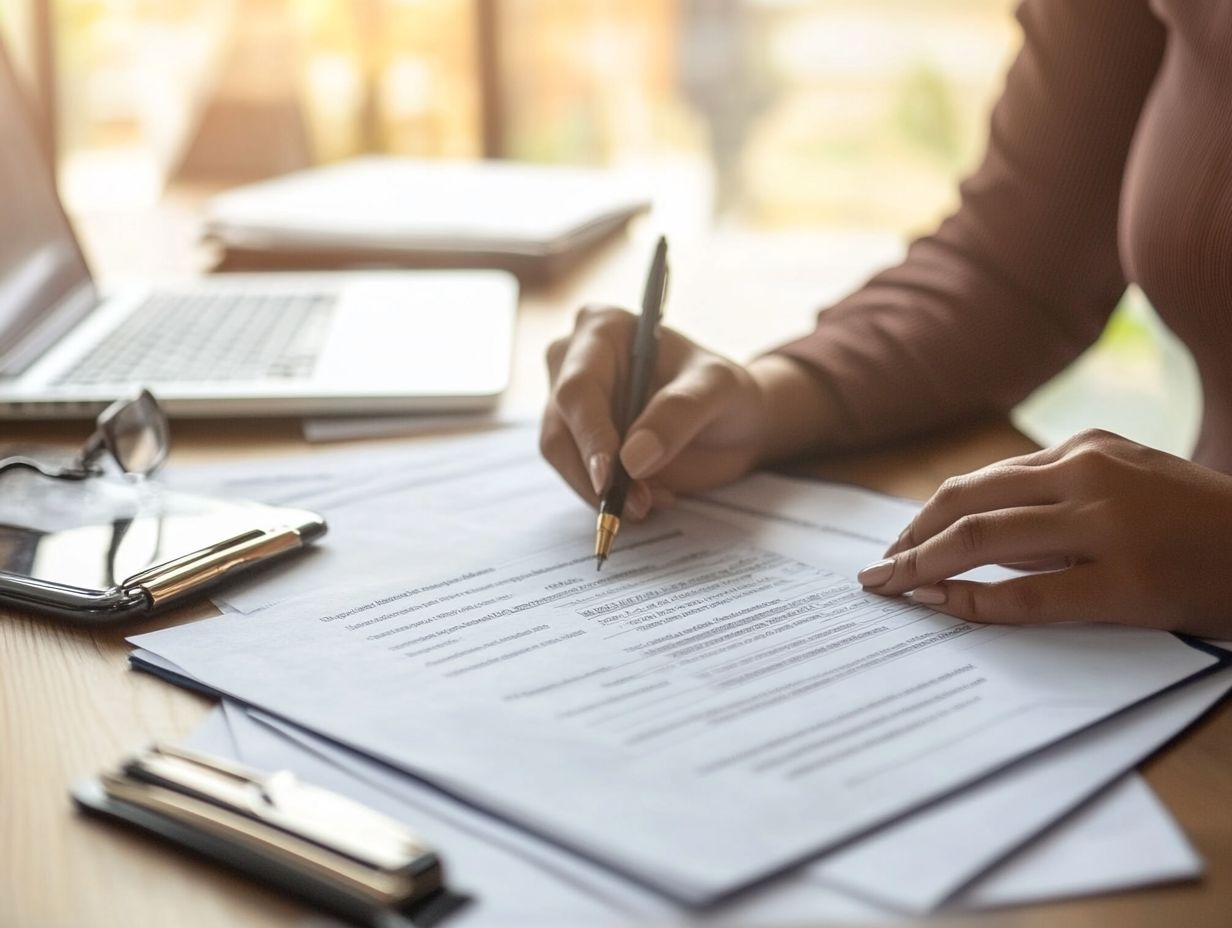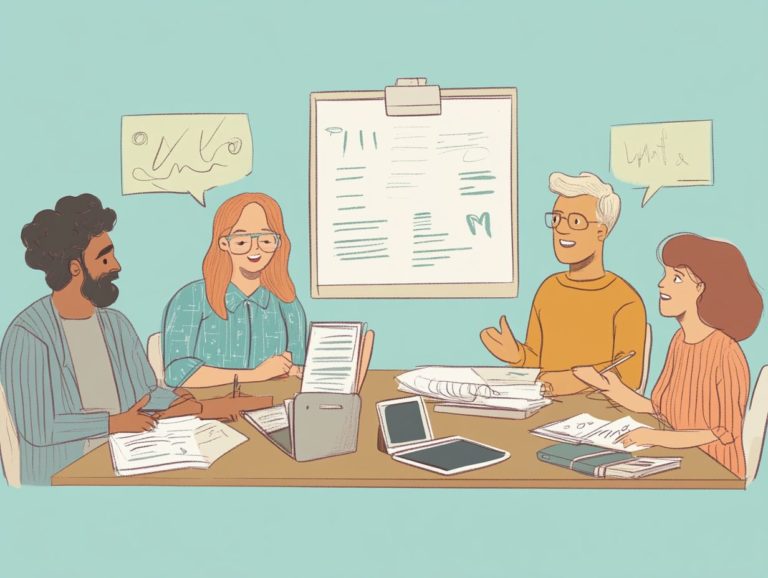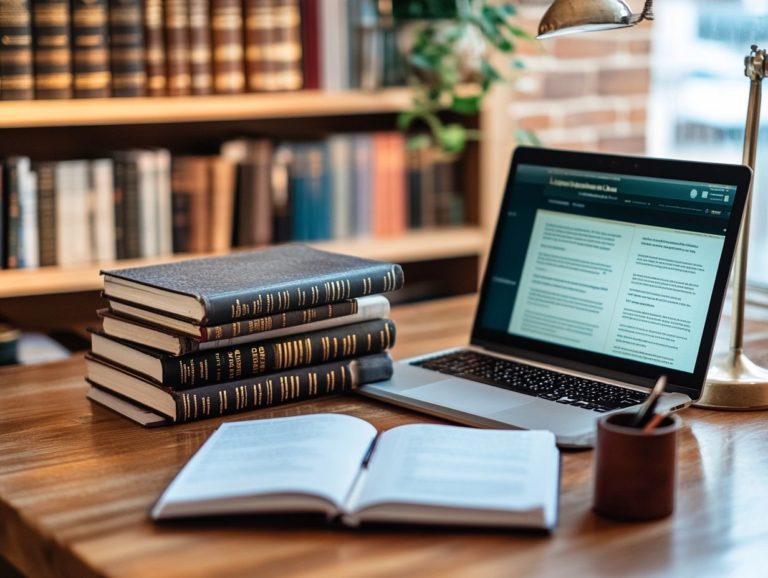Understanding the Copyright Registration Process
Copyright registration is a vital milestone for creators seeking to shield their original works. Understanding the details of copyright registration is key to protecting your intellectual property from being misused.
This guide will show you why registering your work is crucial! You ll learn about fees, anticipated processing times, and the many benefits that come with officially registering your copyright.
Explore this information to ensure your creative endeavors are thoroughly protected.
Contents
- Key Takeaways:
- The Importance of Copyright Registration
- Steps to Register Copyright
- Fees and Timeframe
- Common Copyright Registration Myths
- Benefits of Copyright Registration
- Frequently Asked Questions
- What is the purpose of copyright registration?
- What is the process for registering a copyright?
- Is copyright registration required for protection?
- How long does the copyright registration process take?
- What types of works can be registered for copyright?
- Can someone else register a copyright for my work?
Key Takeaways:
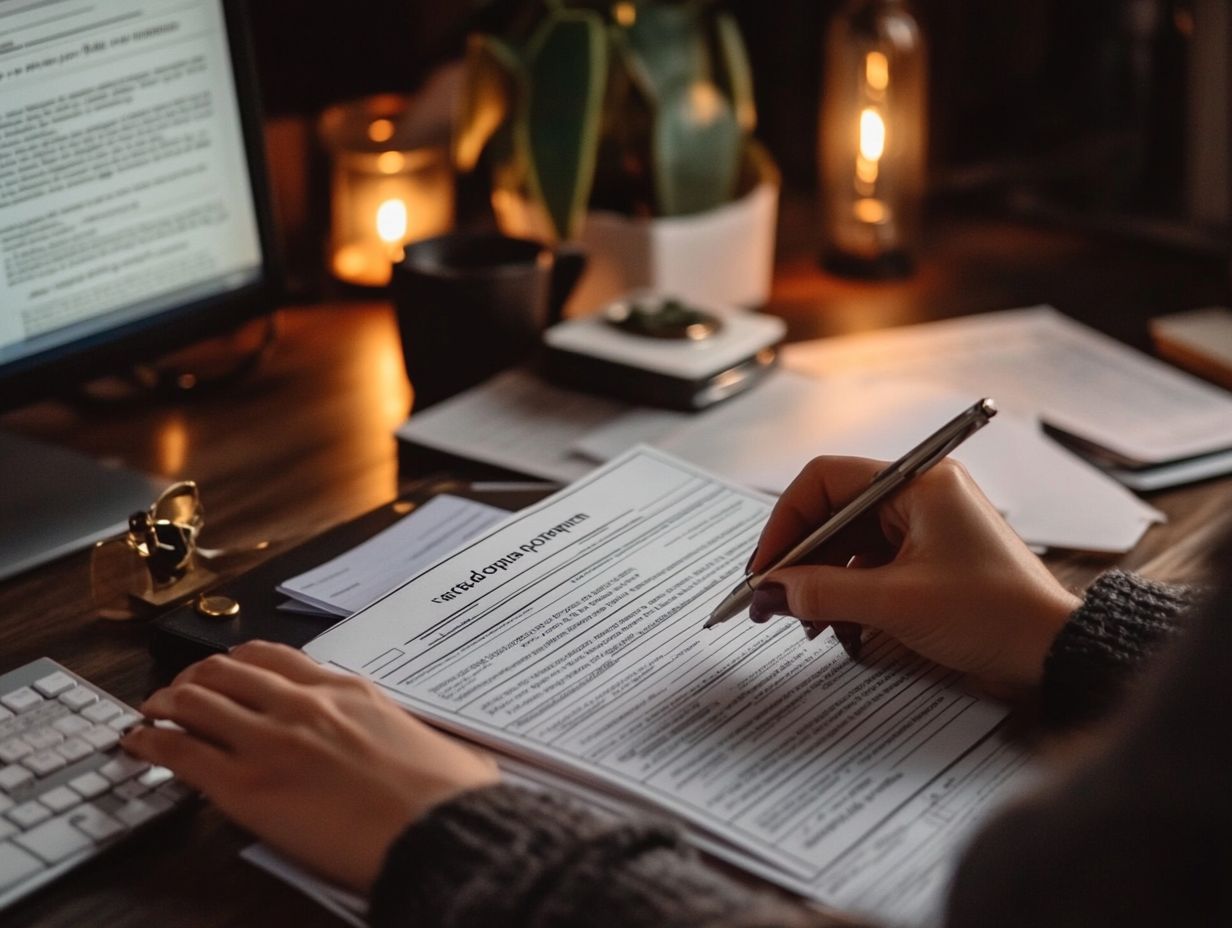
Registering copyright is crucial to protect your creative work and establish ownership. To register copyright, gather the necessary materials and submit the application along with appropriate fees. Misconceptions around copyright registration can be dispelled by understanding the facts and benefits it provides, such as legal protection and other advantages.
The Importance of Copyright Registration
Copyright registration is an essential step for safeguarding your original works, granting you exclusive rights over your creations. This legal framework forms the foundation of copyright protection, as detailed in the Copyright Act, and is managed by the U.S. Copyright Office.
Without proper registration, you risk losing your rights and facing copyright infringement issues that could seriously affect your artistic vision and financial stability.
Why Registering Copyright is Necessary
Registering copyright is essential to protect your original works from unauthorized use and copyright infringement. This legal safeguard not only strengthens your position during disputes but also acts as a shield against potential violations.
By skipping this vital step, you expose yourself to risks, from unauthorized reproductions of your work to others profiting unfairly from your creativity. Consider the infamous case surrounding the song “Blurred Lines,” where the original songwriters were awarded substantial damages due to copyright infringement.
When fair use policies come into play, the consequences can be vastly different for those who have registered their works versus those who haven’t. Registration enables you to assert your rights more effectively under these policies, making it simpler to defend against fair use claims that might otherwise be tough to contest.
Steps to Register Copyright
Registering copyright is a meticulous process that requires attention to detail to ensure that your artistic and original works receive the protection they deserve. While this focuses on copyright, understanding the trademark application process is equally important for safeguarding your creative efforts in other ways. It begins with completing a specific registration application at the copyright office, setting the foundation for protecting your creative work.
Gathering Necessary Materials
Your first step is gathering the necessary materials for copyright registration. This requires detailed information about your original works along with any supporting documentation that demonstrates your ownership. Additionally, if you’re considering trademarks, understanding the trademark registration timeline can be crucial.
You ll need to provide copies of the creations you wish to protect, whether they are manuscripts, musical scores, visual art, or software code, among others.
Having clear documentation such as drafts, emails, or records of creation not only strengthens your claim of authorship but also traces the evolution of the work over time, highlighting the unique elements that set it apart.
It s essential to compile everything meticulously, as a thorough approach to this process can significantly benefit future claims, making it easier to assert your ownership if the need arises.
Start collecting your materials today to protect your creative work!
Submitting the Application
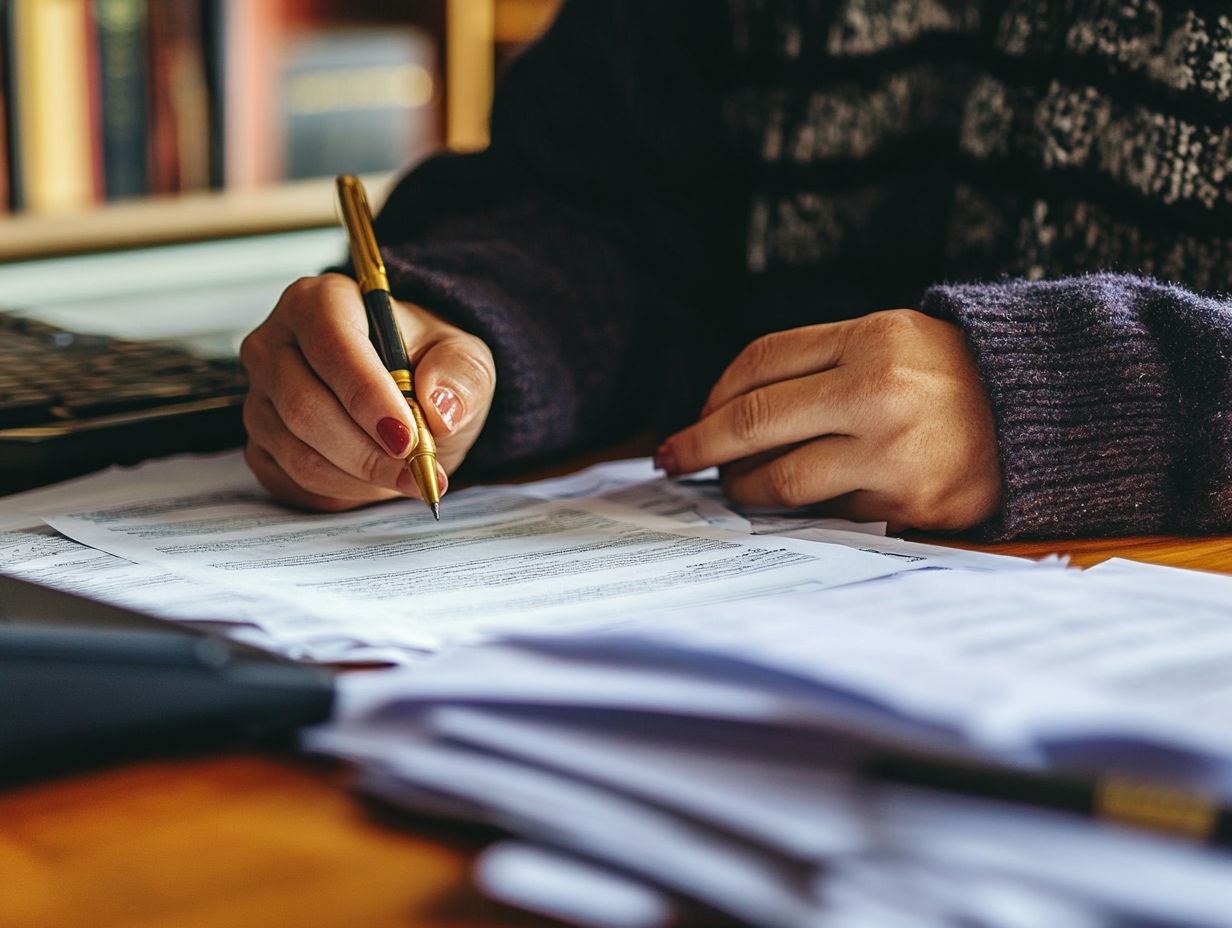
Submitting your application for copyright registration is a straightforward endeavor that means filing your application at the copyright office while ensuring compliance with all necessary guidelines for copyright protection.
To get started, you ll need to complete the designated application form available on the copyright office s website. Carefully provide all required details about your work, including the title, authorship, and the way you present your work, such as writing, music, or video.
Be mindful that there is usually a fee for this registration, which can vary based on the type of work you re registering. After you submit your application, it’s essential to keep a copy for your personal records; this document will serve as your proof of registration.
Maintaining accurate records not only simplifies future reference but also fortifies your legal standing should any ownership disputes arise.
Fees and Timeframe
Understanding the fees and timeframe associated with copyright registration is essential for you as a creator. For detailed information, you can check out what are the steps to register a copyright.
The cost of registration can fluctuate based on the type of work you re protecting, and the processing time can significantly influence how swiftly you secure your legal rights.
Cost of Copyright Registration
The cost of copyright registration generally falls between $35 and $125, depending on the type of work and whether you choose to file online or via traditional mail through the copyright office.
For example, if you re registering a single work online, you might only pay $35. In contrast, a group registration for similar types of works can be as low as $55, offering you substantial savings.
However, if your work is more complex think musical compositions or audiovisual productions registration fees can climb toward the higher end of that range.
If you re part of a nonprofit, you have some advantageous options at your disposal. You may qualify for reduced rates or even grants to cover registration fees when your projects focus on educational or public benefit performances.
Exploring these funding opportunities can significantly ease the burden of copyright registration, especially for those dedicated to enriching community arts or educational initiatives.
Expected Processing Time
You can expect processing times for copyright registration to vary from a few months to over a year, primarily influenced by the volume of applications the copyright office receives.
Your submitted application s completeness is a key factor in how swiftly the process moves along. If you happen to leave out essential details or documentation, expect delays as the copyright office works to clarify or gather the missing information.
Seasonal fluctuations in submissions can create backlogs, extending review times.
Understanding these variables is essential for individuals and creators who want to secure their intellectual property efficiently.
Common Copyright Registration Myths
Numerous misconceptions about copyright registration can create considerable confusion, especially regarding copyright infringement and the nuances of fair use for creators.
Understanding these intricacies is essential for navigating the complexities of intellectual property law effectively.
Dispelling Myths and Clarifying Facts
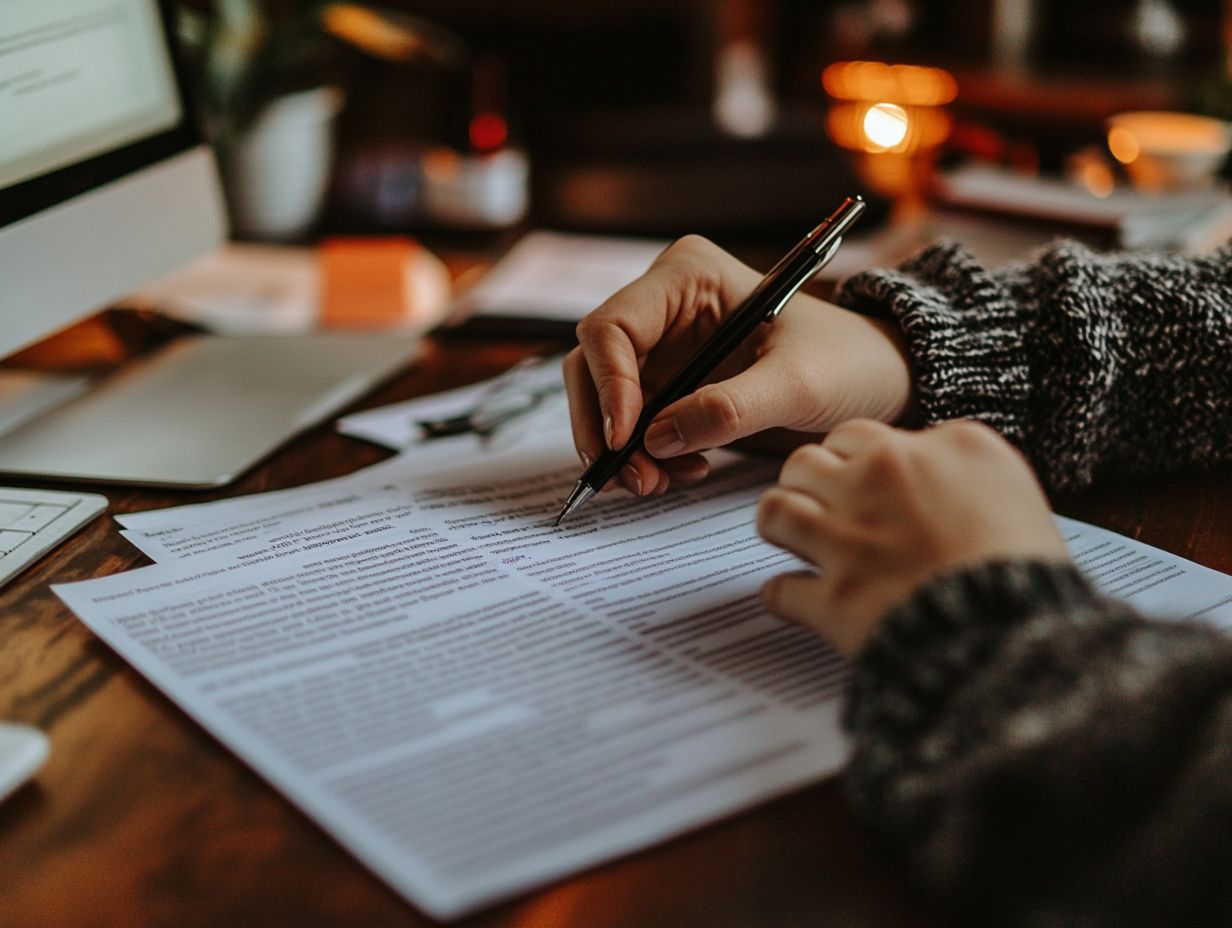
Dispelling myths about copyright registration is crucial for you. Many people believe that simply creating a work automatically grants protection, but in reality, copyright registration significantly enhances your legal recourse against copyright infringement.
Understanding the relationship between fair use and copyright registration is essential for you as a creator. It clarifies how your rights can be enforced. For instance, it’s a common misconception that fair use exempts someone from needing registration, but that’s not entirely accurate.
Fair use is a complex legal doctrine that permits limited use of copyrighted material without permission. However, to navigate it effectively, you need to understand the full scope of copyright protection. Without registration, you may struggle to prove ownership or pursue legal remedies if unauthorized use occurs.
Therefore, grasping these concepts thoroughly is vital to safeguarding your creative works.
Benefits of Copyright Registration
Copyright registration offers numerous benefits. It provides legal protection and reinforces your exclusive rights.
This step safeguards your work. It creates a safe space for your creative pursuits.
Legal Protection and Other Advantages
Legal protection through copyright registration grants you exclusive rights. This enables you to control how your original works are used, distributed, and monetized.
This control is essential in today s digital landscape, where unauthorized reproduction can occur in the blink of an eye. For example, a renowned photographer successfully sued a company for using her images in advertisements without her permission.
This situation showcased the financial consequences for the infringer and emphasized the importance of securing your rights as an artist. Another compelling case involved a musician whose registered copyright helped them win a case against an artist who borrowed their melody without consent.
Such cases highlight the critical value of copyright registration. It acts as a protective measure for creative expression, ensuring you receive rightful compensation for your work.
Frequently Asked Questions
-
What is the purpose of copyright registration?
The purpose of copyright registration is to legally protect your original works, like books, music, art, or software. This prevents them from being used or reproduced without your permission.
-
What is the process for registering a copyright?
The first step is to fill out the appropriate application and submit it to the copyright office. You will need to provide a copy of the work and pay a registration fee.
-
Is copyright registration required for protection?
No, copyright protection exists as soon as an original work is created. However, registering your copyright provides additional legal benefits and makes it easier to enforce your rights in case of infringement.
-
How long does the copyright registration process take?
The processing time for copyright registration can vary, typically between 3-6 months. It may take longer if there are issues with the application or a high volume of registrations at the copyright office.
-
What types of works can be registered for copyright?
Almost any original work can be registered for copyright, including literary works, musical compositions, computer software, and photographs. However, copyright does not protect ideas or facts only the expression of those ideas.
-
Can someone else register a copyright for my work?
No, only the creator of the original work or someone authorized can register a copyright. Make sure you have rights to the work before attempting to register it.

